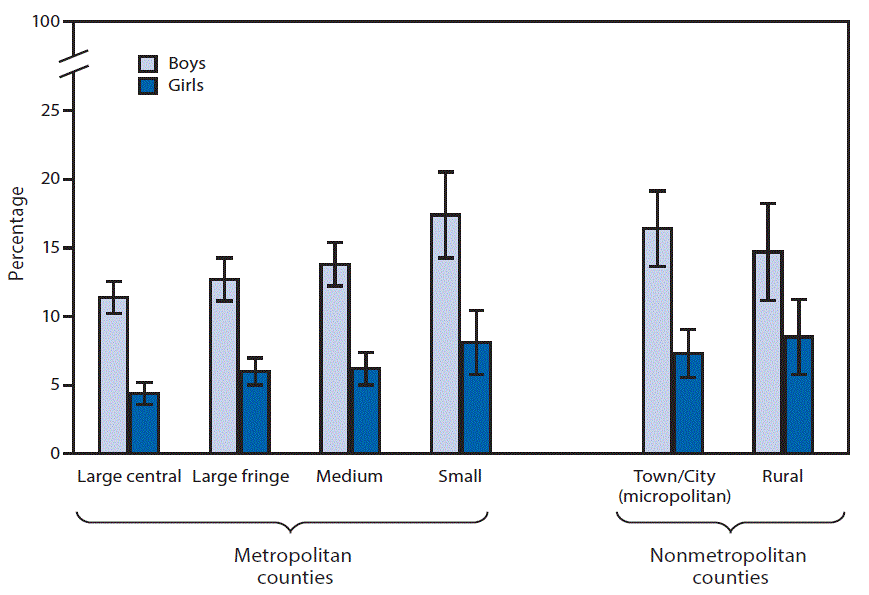QuickStats: Percentage* of Children and Teens Aged 4–17 Years Ever Diagnosed with Attention-Deficit/Hyperactivity Disorder (ADHD),† by Sex and Urbanization§ of County of Residence — National Health Interview Survey,¶ 2013–2015
Weekly / June 16, 2017 / 66(23);625

* With 95% confidence intervals indicated with error bars.
† Based on responses to the question, “Has a doctor or health professional ever told you that [child] had attention-deficit/hyperactivity disorder (ADHD) or attention deficit disorder (ADD)?“
§ Counties were classified into urbanization levels based on a classification scheme developed by the National Center for Health Statistics that considers metropolitan/nonmetropolitan status, population, and other factors. https://www.cdc.gov/nchs/data/series/sr_02/sr02_166.pdf.
¶ Estimates are based on household interviews of a sample of the noninstitutionalized U.S. civilian population and are derived from the National Health Interview Survey Sample Child component.
During 2013−2015, the percentage of children and teens aged 4–17 years who had ever received a diagnosis of ADHD was significantly higher among boys than among girls within all urbanization levels. Among boys, those living in small metro and nonmetro micropolitan areas were more likely to have received a diagnosis of ADHD (17.4% and 16.4%, respectively) than were those living in large central (11.4%) and large fringe (12.7%) metropolitan areas. Among girls, those living in large central areas were less likely to have received a diagnosis of ADHD (4.4%) than those living in each of the other five types of urban/rural areas.
Source: National Center for Health Statistics. National Health Interview Survey, 2013–2015. https://www.cdc.gov/nchs/nhis.htm.
Source: National Center for Health Statistics. National Health Interview Survey, 2013–2015. https://www.cdc.gov/nchs/nhis.htm.
Reported by: Catherine Duran, cduran@cdc.gov, 301-458-4198; Cynthia Reuben, MA.






















.jpg)












No hay comentarios:
Publicar un comentario